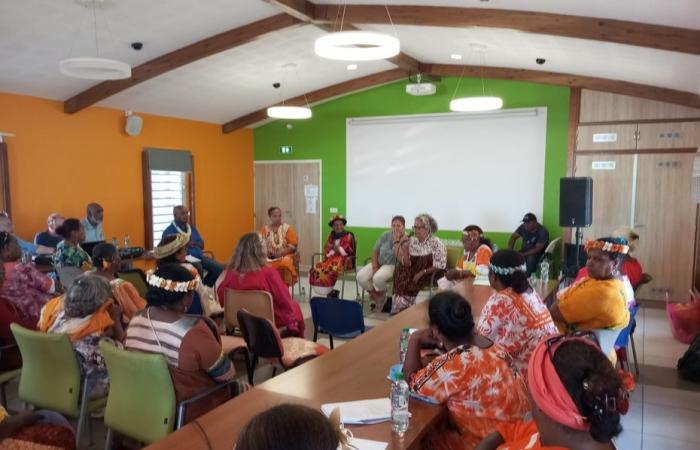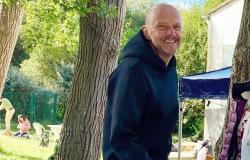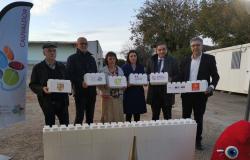After six months of an unprecedented social and identity crisis, the second round table of Fifo hors les Murs in Maré gave the floor to committed women to imagine avenues for the future. Rebuilding education, intergenerational solidarity, recognition of cultural diversity and redefinition of values: so many challenges to overcome to build a harmonious future in a territory in search of balance.
On the occasion of a new round table in Maré, Tuesday November 19, tongues continue to be loosened. Talking about one's feelings, and trying to explain the causes of the events of the last six months, could not be done without outlining the elements of the aftermath. Courageously, host Sidji Chimenti set about the task, launching her guests as planned, then a once again well-stocked room, on the tracks of the future: how to envisage the future? What will be essential for tomorrow? And how can we better prepare for this future with our children?
Marie-Laure Martin believes that young people have “need to regain self-confidence” and therefore hopes that the components of the country will “open the door.” The family reappears, but this time hollowly, in an analysis of the devastation caused by its absence, noted by Farah Caillard, a feminist figure in New Caledonia. “Already, we should ask ourselves questions about these young people. Who are they? How do they live? Who were they born to? Do they live in blended families? Single parents?”
Evoking poverty as a scourge to be fought, Maryline Sinewami would like to rely on more appropriate data. The mayor of Maré contests the calculation bases of a survey classifying the municipality she heads as the poorest in the territory. “There are other elements to take into account than numbers, for example quality of life”she notes.
“Are we still actors in our future ?” The moderator's question divides the table. No hesitation, for Maryline Sinewami: “Yes. There is a solidarity that has been born. We are able to be actors in our own development.” Farah Caillard puts conditions: “As women, we have always done it, we didn't wait until May 13 to do it. But politicians do not share this space. We remember this letter from the separatists in the 2000s declaring that women were not ready for power. Now we need a new world, with women at the head of political movements.”
Marie-Laure Martin evokes “a catastrophic state, an entire world bankrupt”to put forward a nuanced answer: “We should review all our diagrams. Let's try to write a new project together.” Tidal teacher Yeiwi Ishingo denounces a way of life in which the culture of appearance has taken up too much space. “Children must be taught to recognize what is fake.”
Often raised over the past six months, the questions of racism and the manipulation of young people, however, are not really debated. “Water and oil can mix. For this, you have to start very early, like in New Zealand”assure Marie-Laure Martin.
There is unanimity on the second point. First to respond, Farah Caillard remembers the Red Scarves, “a liberation movement which allowed us to rediscover ourselves. But it was a peace movement. Today, it is a social or societal movement of a population left behind.” “A fire that has been smoldering for several years”adds Maryline Sinewami.
“There was the 'white paper' on Kanak youth. It's gotten worse since then. Saying 'instrumentalized' is quick language. We invite communities to take inspiration from us. As long as we cannot see others in their diversity, we cannot truly live together. Maybe some people took advantage of it, concedes Yeiwi Ishingo. But Masters and bac +5 were also on the roadblocks. There was injustice; we had to react.”
Social networks are indicted for their ability to precipitate the Kanak “in a world that is not ours” and to lead the youth behind “other benchmarks and when the base is not solid, we arrive at this 'decadence'. The model that we must give is exemplary. Before, we did not talk all the time. An attitude, a look, a gesture: the children understood and, later, imitated the adults Today, we talk, we talk, we talk. Words and actions no longer correspond.“, underlines Maryline Sinewami. Yeiwi Ishingo adds: “A child who gets up in the morning today does not know how everything arrived on the table. We must return to moral lessons, to make them future citizens.”
If the future depends on education, everyone agrees, there is the same unity on the profound changes to be made. The mayor of Maré calls for “change the education system to change values, which today are limited to the acquisition of goods and promote elitism. The school must develop a system in which everyone has their place and can find their development. In Maré, we have fishing, agriculture. We must adapt the training to this.” “Let each community know its history, already”suggests Farah Caillard. “The entry is through the languages”, suggests Yeiwi Ishingo, citing the example of a student who rediscovered a taste for school thanks to Wednesday Nengone language classes, where he excelled.
Danielle Guaenere, advisor to the president of the Caledonian government, hopes that the announcement of the reconstruction of destroyed educational establishments will be used to build new models of schools where “the kids feel good”. A seminar on the overhaul of the school is organized on November 30 by the government.
All agree: within the communities as between the different components of the New Caledonian population, the important thing is to recreate links. This will be essential to exit a society “sick, tired and therefore violent”in the words of Farah Caillard.






